Reflecting on 2020
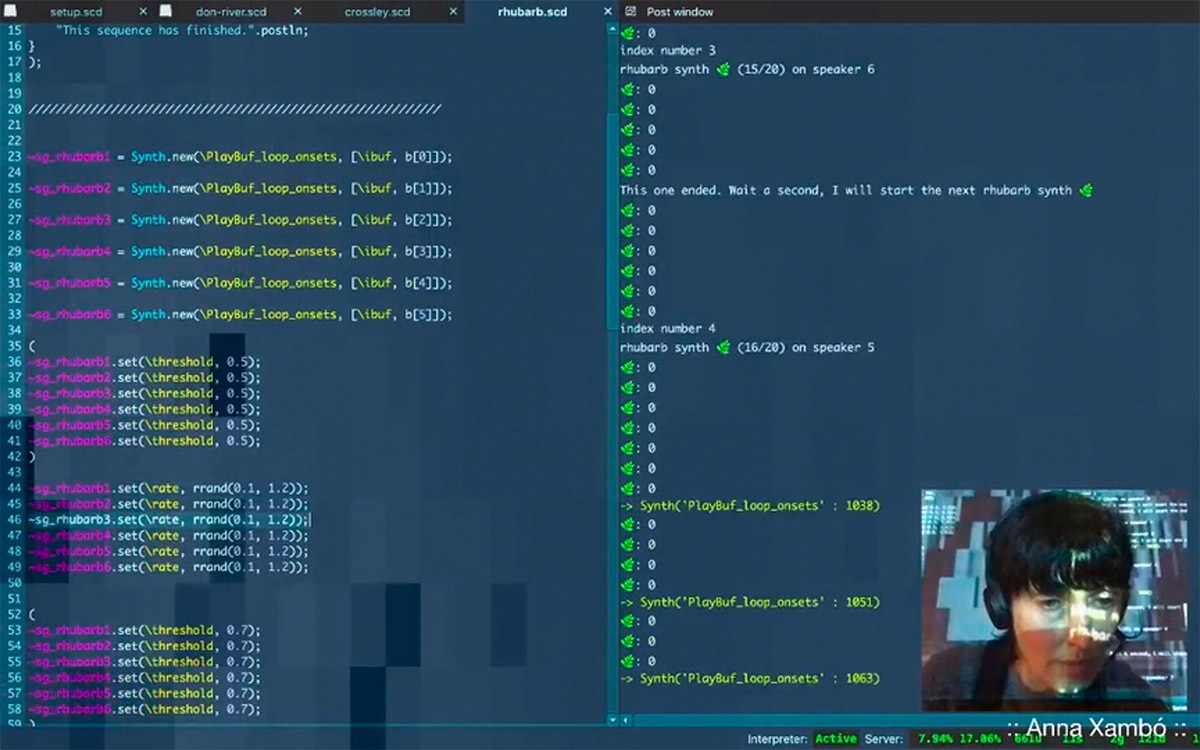
In this blog post, I will reflect on my work during 2020. It has been by far a different year. It has turned a historical year for a devastating global pandemic that has changed our lifestyle. For academics, this might have changed to a lesser extent, probably because many of the research activities were online already. However, other related activities such as teaching or performing have moved to new hybrid or online formats. It has been a year of considerable challenges but also opportunities to explore new ways of doing.
At the beginning of the year, I started as a senior lecturer in music and audio technology at De Montfort University in Leicester, UK. Therefore, I started the year moving from Norway to the UK, as discussed in my last year’s blog post “Becoming a Woman Academic in Music and Audio Technology”. A few weeks after, in March 2020, the national lockdown started. It implied that, practically, all moved to online until the end of 2020. It has been busy, anyhow. Next, I will summarise my 2020 in terms of research, teaching, performance, and community.
Research
This year I have been working on new projects and roles, often facing the challenges of adapting the content to online delivery, which includes:
- Principal investigator of the project MIRLCAuto: A Virtual Agent for Music Information Retrieval in Live Coding since 31 March 2020, a project funded by the EPSRC HDI Network Plus Grant - Art, Music, and Culture theme. You can explore the project’s website here: https://mirlca.dmu.ac.uk
- Keynote speaker (online) on 24.06.2020 at the Sound and Music Computing Conference 2020 with the talk “Collaborative/Participatory Music Experiences: A Dialogue Between SMC and HCI”. You can find out more about both the talk and the video recording in this blog post: http://annaxambo.me/blog/research/2020/06/24/smc2020-keynote
- Guest co-editor of the JAES Special Issue on Web Audio, published in October (volume 68 number 10) at the Journal of the Audio Engineering Society. You can read our guest editors’ note here.
In terms of publications, I have co-authored 2 conference papers, 1 journal article, and 1 book chapter:
- Jawad, K., Xambó, A. (2020) “How to Talk of Music Technology: An Interview Analysis Study of Live Interfaces for Music Performance among Expert Women”. In Proceedings of the International Conference on Live Interfaces (ICLI 2020). Trondheim, Norway. pp. 41-47.
- Xambó, A., Roma, G. (2020) “Performing Audiences: Composition Strategies for Network Music using Mobile Phones”. Proceedings of the New Interfaces for Musical Expression (NIME ’20). Birmingham, UK. pp. 55-60.
- Støckert, R., Bergsland, A., Xambó, A. (2020). “The Notion of Presence in a Telematic Cross-Disciplinary Program for Music, Communication and Technology”. In Eiksund, Ø. J., Angelo, E., Knigge, J. (eds.) Music Technology in Education – Channeling and Challenging Perspectives. (Open Access). Cappelen Damm Akademisk, Oslo. pp. 77–101.
- Xambó, A., Støckert, R., Jensenius, A.R. and Saue, S. (2020). “Learning to Code through Web Audio: A Team-Based Learning Approach”. [PUBLISHED] [AAM]. Journal of Audio Engineering Society, 68(10), pp. 727-737. Special Issue on Web Audio.

The list of acknowledgements is long! (please refer to the acknowledgements sections of the above outputs for the detailed list). Thanks to all the authors, collaborators, conference organisers, editors, and funders who have made these projects possible. Special thanks to the co-authors: Karolina Jawad, Gerard Roma, Robin Støckert, Andreas Bergsland, Alexander Refsum Jensenius and Sigurd Saue for insightful conversations. It has been a great experience to co-edit the JAES Special Issue together with Sara Martín and Gerard Roma, with the precious, professional help and collaboration of Bozena Kostek and the JAES editorial team. Many thanks to Annabelle Baker-Smith and Leigh Landy for working in a tight timeframe to achieve a successful bid with the MIRLCAuto project. Thank you to Gerard Roma for influencing conversations. Thanks to Alan Munro, Atau Tanaka, and Tadeo Sendon, as well as to the HDI Network team and the EPSRC, for believing in the MIRLCAuto project, to the DMU team who helps the project to be realised, and to Sam Roig for co-organising the workshops with me. Thanks to all the partners and collaborators of the project: IKLECTIK, Leicester Hackspace, L’ull cec, Phonos, MTI^2, Toplap Barcelona, Flucoma, and Freesound. Thank you to to the conference organisers Andrea Valle, Charalampos Saitis and Simone Spagnol for their invitation to give a keynote talk at SMC 2020, and thanks to Carlo Barbagallo for the technical support. Thanks to the editors Øyvind Johan Eiksund, Elin Angelo, and Jens Knigge for making the book Music Technology in Education – Channeling and Challenging Perspectives a reality.
Teaching, Mentoring, & Assessing
This year I have been teaching the following modules:
- MATD1019 Audio Electronics Fundamentals: Lectures (Spring 2020). Module leader.
- TECH2019 Audio Technology 2: Audio Electronics: Lectures (Spring 2020). Module leader.
- TECH3011 Studio Technology: Audio Electronics: Lectures & Labs (Spring 2020).
- MATD2004 Further Digital Signal Processing: Lectures & Labs (Autumn 2020). Module leader.
- MATD2019 Further Audio Electronics: Lectures (Autumn 2020). Module leader.
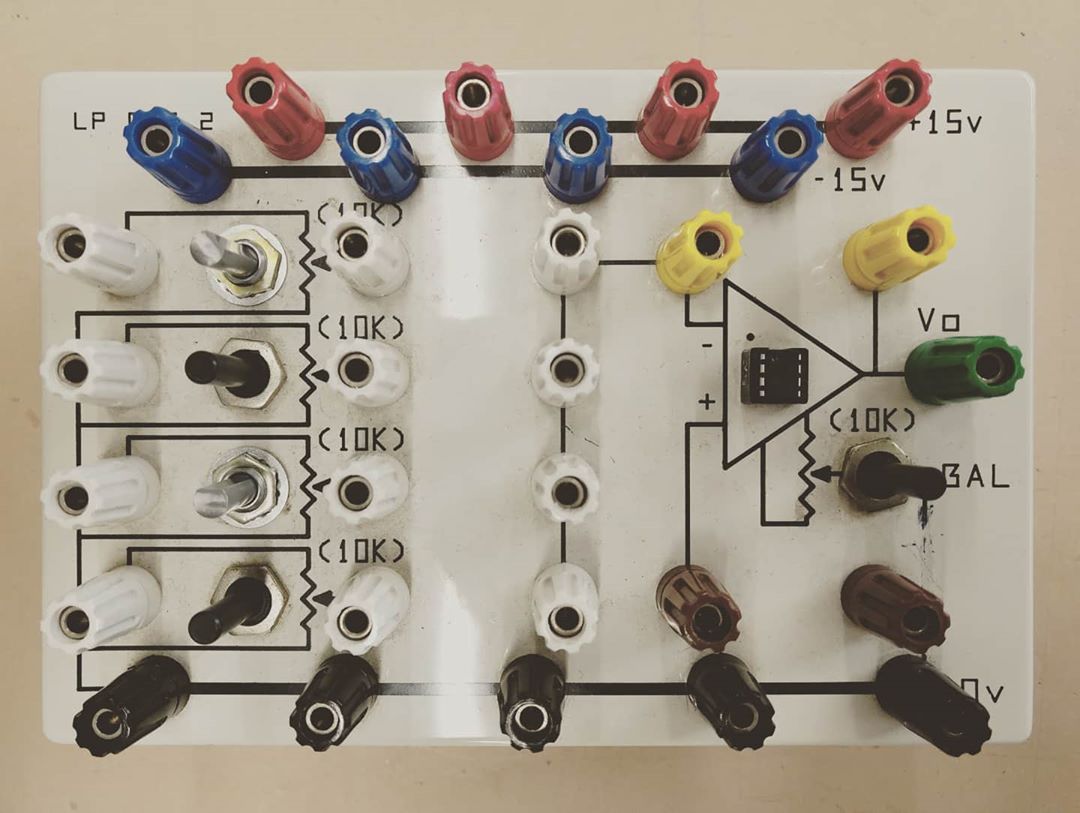
I have been invited to or be part of the following talks and workshops:
- (21 July 2020, 09:00–10:00 / 17:00–18:00 (GMT+1)). “NIME Publication Ecosystem Workshop” by Jensenius, A.R., McPherson, A., Xambó, A., Martin, C., Armitage, J., Granieri, N., Fiebrink, R., Naveda, L. NIME ’20. Birmingham, UK.
- (25 September 2020). Online workshop “Creative Audio Programming for the Web with Tone.js” for the series “Women who Code”, School of Media Arts, Columbia College Chicago, IL, USA. [Slides].
- (6 October 2020). Online presentation: “From Tabletop Tangible Interfaces to Virtual Agents in Live Coding: Five Years of Research in Progress”. IUPUI Music Tech PhD seminar, Department of Music and Arts Technology, Purdue School of Engineering and Technology, Indiana University—Purdue University Indianapolis, Indianapolis, IN, USA.
- (25 November 2020). Online presentation “Music performance with crowdsourced sounds: collaboration by chance” for the master course “MUST5001 Aesthetics and Ideas in the Sonic Arts”, DMU, Leicester, UK. [Slides]
Besides, I took the role of Programme Leader of the BSc Digital Music Technology. It is a young programme that started in autumn 2019.
Altogether, the most visible challenge has been to offer an optimal learning experience delivering most of the content online. My previous experience at NTNU/UiO has been crucial. We were teaching hybrid formats and exploring the possibilities of the medium (as discussed in our articles “The Notion of Presence in a Telematic Cross-Disciplinary Program for Music, Communication and Technology” and “Learning to Code through Web Audio: A Team-Based Learning Approach”).
Furthermore, I have been the principal supervisor of Karolina Jawad (Music Communication Technology, NTNU), who has successfully defended her master thesis:
- Jawad, Karolina (2020) “Gatekeepers by Design? Gender HCI for Audio and Music Hardware”. Master thesis. NTNU / UiO.
Finally, I was an external assessor for the following PhD work:
- External assessor, IMV PhD Midway Assessment for Qichao Lan, Department of Musicology, Faculty of Humanities, University of Oslo, Norway.
Many thanks to Music, Technology and Innovation - Institute for Sonic Creativity (MTI^2), the Leicester Media School, DMU, to Alexander Refsum Jensenius for inviting me to be part of the “NIME Publication Ecosystem Workshop”, to Visda Goudarzi for the invitation to participate in the “Women Who Code” workshop series (Audio Arts and Acoustics Department (Columbia College Chicago, IL, USA), to Timothy Hsu for the invitation to talk at the IUPUI Music Tech PhD seminar (Department of Music and Arts Technology, Purdue School of Engineering and Technology, Indiana University), to John Young for the invite to talk at “MUST5001 Aesthetics and Ideas in the Sonic Arts” (DMU, Leicester, UK), to Karolina Jawad for our fruitful collaboration, to Rolf Inge for the invite to be an external assessor of Qichao Lan, to the workshop attendees and students of the different workshops and modules. Also thanks to Susanne Grunewald, Sven-Amin Lembke, Pete Batchelor, Kevin Walker, Leigh Landy, Simon Atkinson, John Young, James Andean, Ross Clement, Eric Chowanietz, and all the MTI^2 family members for their constant support and insights related to the teaching side at DMU.
Performance & Recording
This year, I was able to combine better my academic activities with performance activities. It seems to be influenced by the general requirement of online delivery. This approach can also bring benefits, as there are no travel commitments. However, online gigs can also miss the raison-d’être of concerts as a social event in the traditional sense.
In total, I have participated in 5 gigs as a solo performer and 1 gig as a participant of a group performance. Out of these 6 gigs, only one was on-site. The majority was programmed as online events, except for one that had to move to online due to lockdown restrictions:
- “A situated live coding session”. MTI CONCERT celebrating 20 years of Music, Technology and Innovation at DMU with current and past staff and PhD alumni. PACE 1, Leicester, UK. 28 February 2020.
- “Crowdsourced Eulerisms”. Eulerroom Equinox 2020. Streaming from Sheffield, UK. 23 March 2020.
- “A Live Coding Exploration of How the Network Sounds”. Network Music Festival 2020. Streaming from Sheffield, UK. 17 July 2020.
- Streaming with liveSHOUT in the Woods Schroeder, F., Meireles, M., Mannone, M., Papadomanolaki, M., Brown, N., Stolfi, A., Alarcón, X., Xambó, A. “Absurdity” (Telematic performance by the Female Laptop Orchestra (FLO)). Physically Distant #2: more online talks on telematic performance. Streaming from Sheffield, UK. 28 July 2020.
- “A live coding session in binaural audio”. Sound Junction Satellites: Live Coding & 3D Sounds. University of Sheffield Concerts/Algomech. Streaming from Sheffield, UK. 14 November 2020.
- “A live coding session”. Similar Sounds: A Virtual Agent in Live Coding. IKLECTIK. Streaming from Sheffield, UK. 12 December 2020.
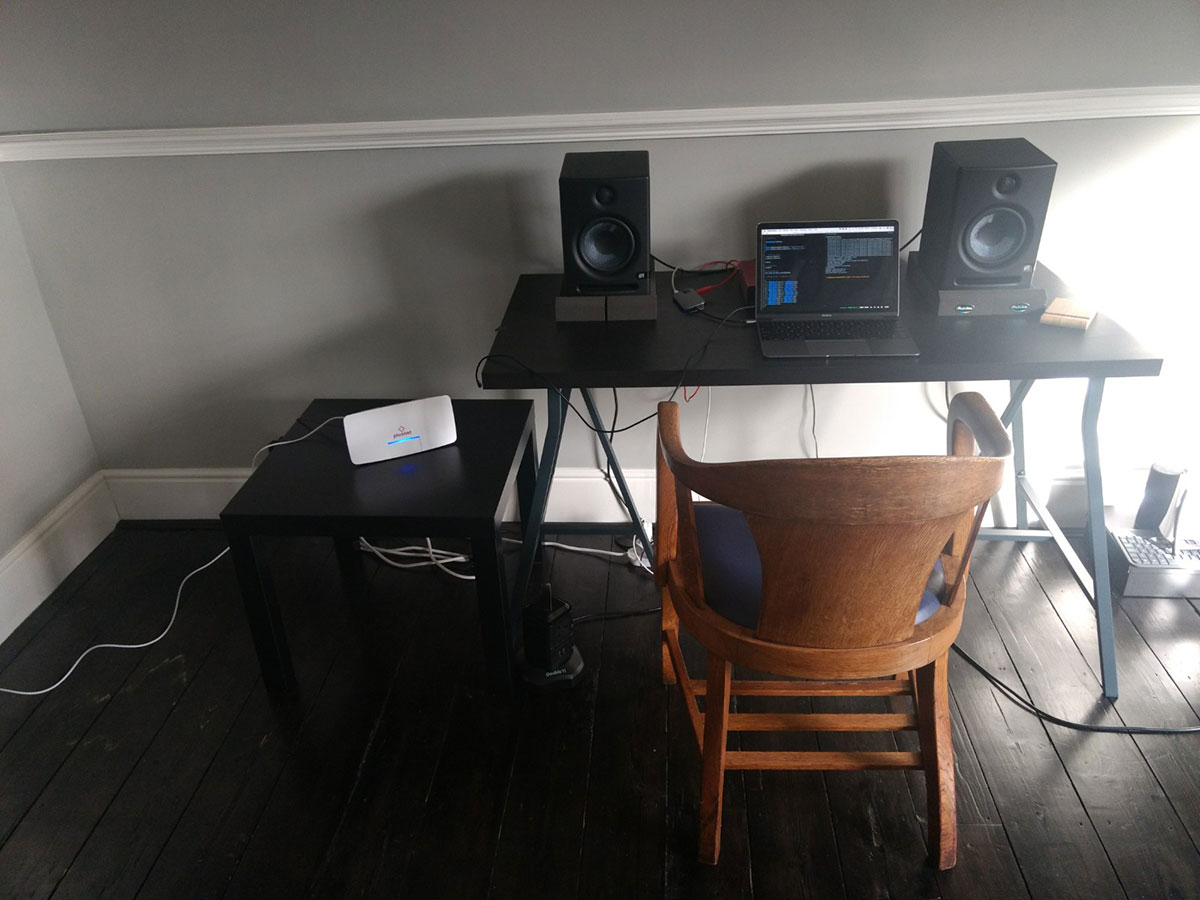
Many thanks to Music, Technology and Innovation - Institute for Sonic Creativity (MTI^2), Leigh Landy, Simon Atkinson, Petros Galanakis, Harry Pentony, Gerard Roma, NTNU MusTek group, the Eulerroom Equinox organisation, the Network Music Festival 2020 organisation, the Female Laptop Orchestra, Alex McLean, Nick Potter, University of Sheffield Concerts, Algomech, Kim Swan and Toby Hyam for their help in a way or another to the realisation of these performances.
I have also contributed with two tracks in two compilations. The proceedings will go to the Black Lives Matter Foundation and Young Minds Together, respectively.
- Track Poème Symphonique For Tape Metronome: Variation I (5.38) @ In Unison (i.u, 2020)
- Track Magnets (4.21) @ Compassion Through Algorithms Vol. II (Light Entries, 2020)
Many thanks to Lawrence Mc Guire and Victor Gybels (In Unison), as well as to Alex McLean (Compassion Through Algorithms Vol. II) for their invitation and initiative.
Community
This year, I changed from my active role in the organisation Women Nordic Music Technology to more distributed contributions. My actions have had the common goal towards improving the gender balance in the music technology and sound and music computing (SMC) fields, which includes the following activities:
- Interview by Anna Jakobsson about the WoNoMute organisation. This interview is part of the book: Farnsworth, B., Jakobsson, A., Massera, V. (2020) “Taking the Temperature: Crisis, Curating, and Musical Diversity”, OnCurating.org, Zurich, pp. 114-119.
- Women in NIME (WiNIME) Officer, International Conference of New Interfaces for Musical Expression. As part of the role, I have been a jury member of the Pamela Z Award for Innovation (NIME ’20), Royal Birmingham Conservatoire, Birmingham, UK. You can read our blog post about the award here. I am also participating in the NIME diversity meetups together with Laurel Pardue and Juan Martinez Avila.
- Diversity consultant of the 2nd Conference on AI Music Creativity (MuMe + CSMC).
- Member of the Intersections, Feminism, Technology & Digital Humanities network (IFTe).
- Oral Presenter (online) (21 September 2020). “Virtual Agents in Live Coding: Preliminary Investigations”. Meetup for Women in Arts and Technology. NOTAM, Oslo, Norway. [Slides]
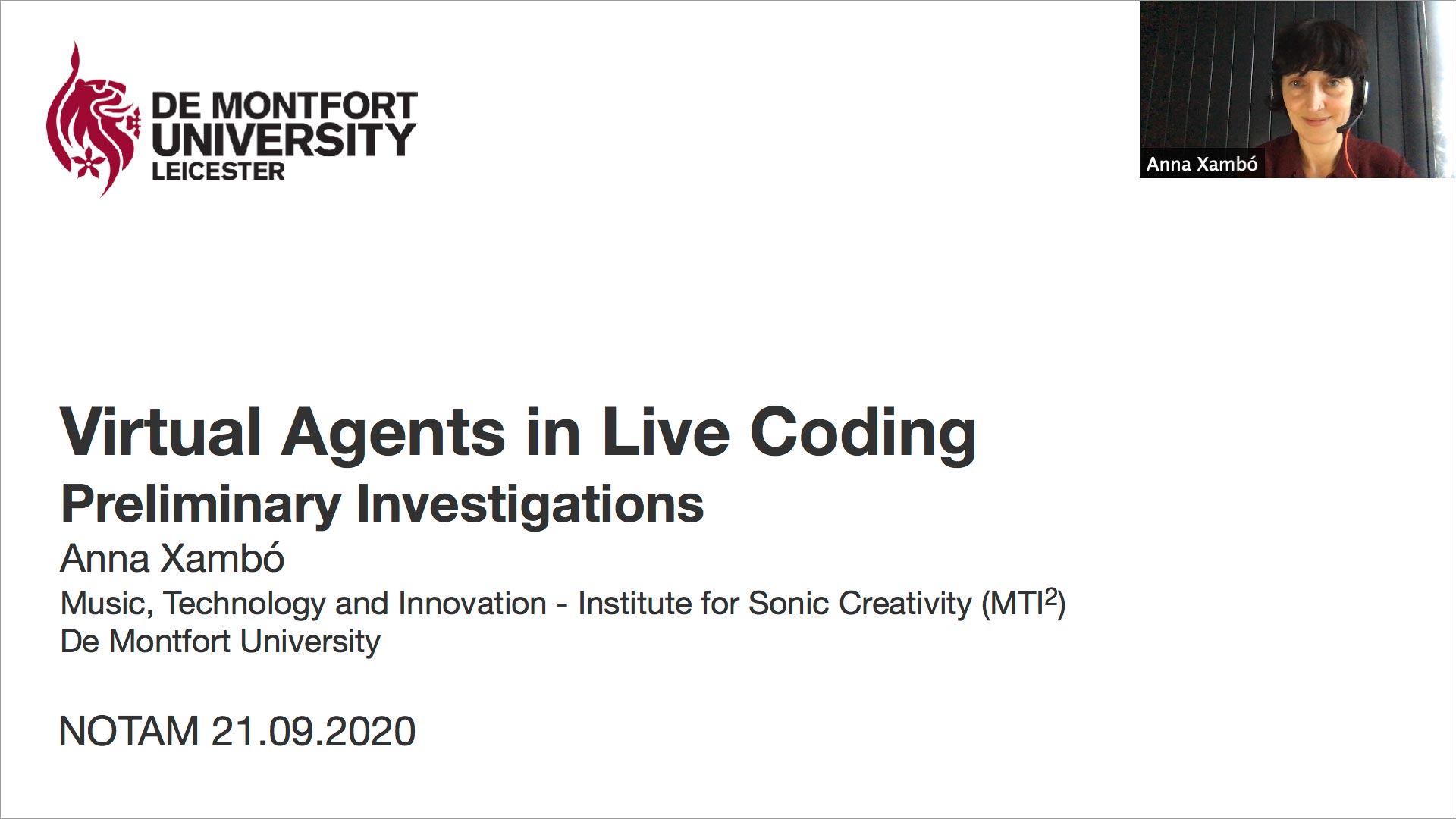
Many thanks to Anna Jakobsson for inviting me to be interviewed, thanks to the Pamela Z Jury Award 2020, to Laurel Pardue and Juan Martinez Avila for great conversations as well as Alexander Refsum Jensenius and Charles Martin for their help with the NIME diversity working group, to Artemi-Maria Gioti for the invite to be diversity consultant at AIMC 2021, to Cecile Chevalier for inviting me to be part of the iFTE network, and to Mariam Gviniashvili and Jenny Berger Myhre for their invitation to present at the NOTAM’s Meetup for Women in Arts and Technology.
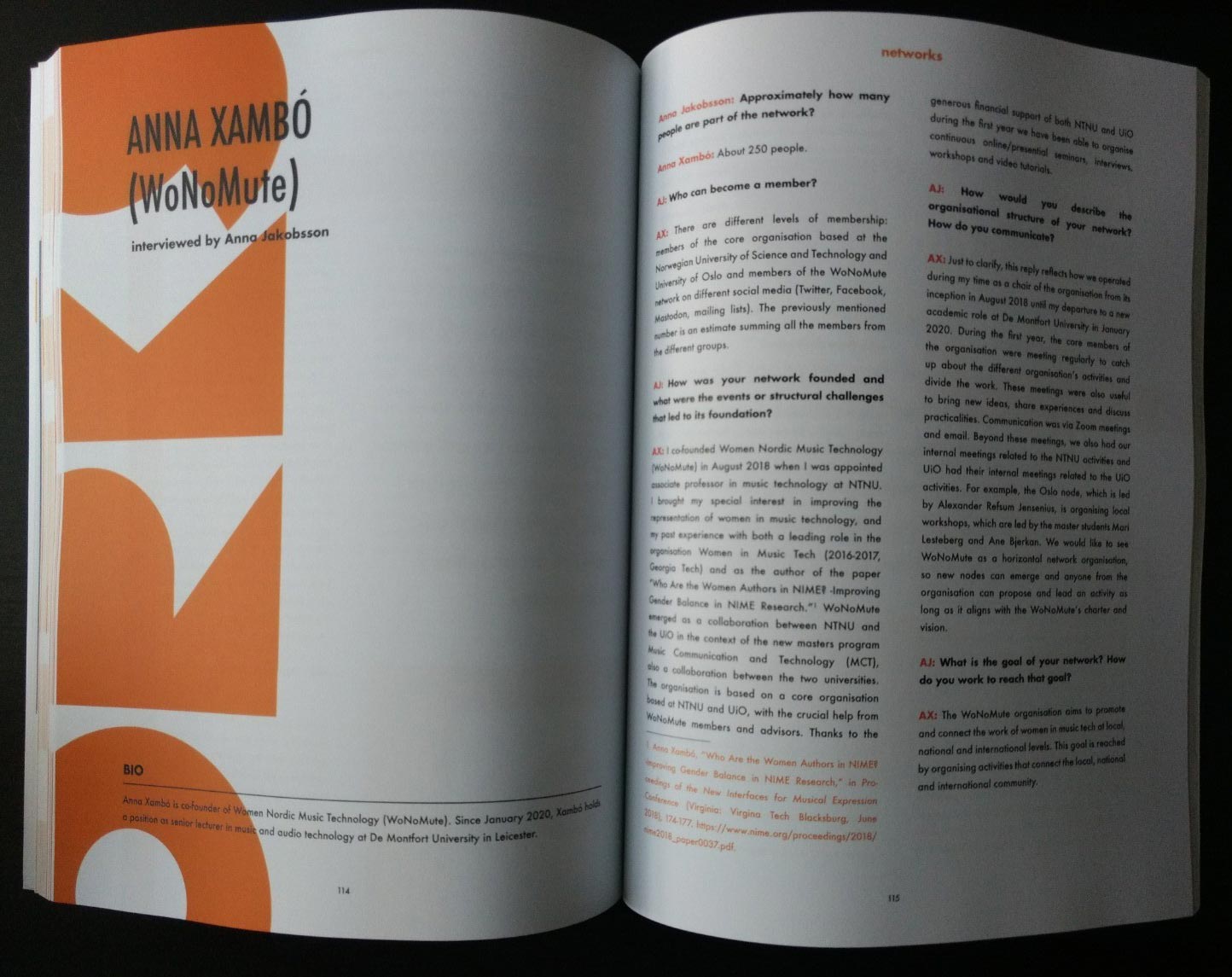
Final Remarks
Overall, it has been a busy year. Despite having improved, I am still aiming for a better balance between work and life. One nurtures the other, so it is crucial to keep both with its deserved space. Learning to say ‘no’ is still on the agenda for next year. I am happy that I had more time for blogging (or ‘forced’ myself to reserve a time for it), which I like as an efficient tool for reflection and dissemination. Also, I am satisfied that I had more time for performing and composing. It is partly thanks to the ‘imposed’ online condition. However, it is still challenging to reserve time for developing (coding and debugging) and researching, two relevant and demanding activities, combined with everything else. I hope to protect even more this area in the future.
It is now time to start a new year. I wish you all the best for the New Year 2021. Stay well and safe.